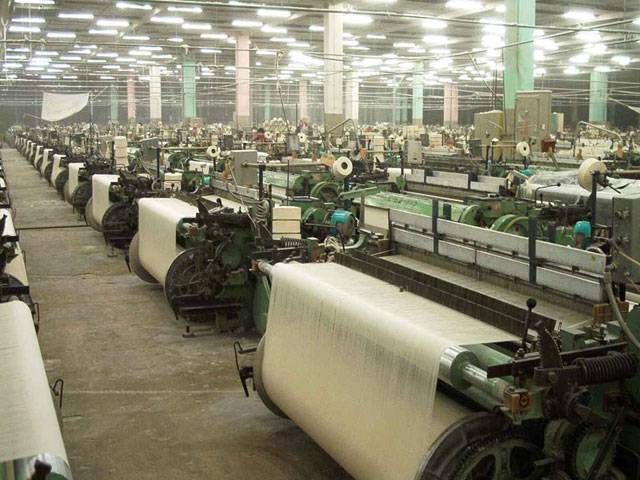Lahore: - The All Pakistan Textile Mills Association (APTMA) announced on Saturday to observe Black Day in August or September to highlight the issues affecting the textile industry; however, it failed to give any fixed date in this regard.
APTMA Punjab Chairman Aamir Fayyaz, while addressing a press conference, said the general body of the association had decided unanimously to observe black day in the end of August or in the first week of September by closing textile mills across Pakistan.
Fayyaz deplored that textile and clothing exports had declined by $1.1 billion or 7.4 percent in terms of value in Fiscal Year 2015-16.
“Bangladesh’s textile and clothing exports increased by eight percent and Vietnam’s by more than 15 percent during the same period,” he said, and added, “Around 70 percent of the textile industry, which is based in Punjab, is facing immense problems with respect to the cost of doing business.”
He said cotton production in Pakistan had come down to 9.8 million bales, the lowest in the last 14 years, adding that cotton production in Punjab had dropped by more than 40 percent.
“In the last three years, Pakistan’s textile and clothing exports dropped by $1.4 billion, whereas textile exports of Bangladesh went up by $3 billion; India’s by $4 billion and Vietnam’s by $8 billion,” he said, adding, “Pakistan’s share in global textile trade decreased to 1.5 percent that was 2.3 percent a few years ago.”
On the other hand, he said India’s share increased to five percent from 3.5 percent, Bangladesh’s to 3.7 percent from 1.6 percent and China’s to 38 percent from 30 percent during the same period.
APTMA Punjab chairman further said that despite a historic fall in oil prices, the trade deficit further increased due to sharp decline in exports and a steep rise in imports.
“Pakistan’s borrowing from both local and international institutions has increased to an alarming level. During the last three years, government’s debt increased roughly by $48 billion ($35 billion domestic, $13 billion foreign),” he informed.
Fayyaz questioned that in view of declining exports and falling production, who would repay the debt (around 45 percent of the total budget is being consumed by debt servicing), which was causing closure of industries, fall in exports and unemployment?
He called for the withdrawal of four percent customs duty and five percent sales tax on the import of cotton and removal of duties and taxes on the MMF import. He demanded the National Electric Power Regulatory Authority (Nepra) to notify determination of power tariff for 2015-16 without additions like surcharges/innovative taxes.
He said power tariff should not be higher than Rs 8/KWh in any case. “All ambiguities relating to SRO 491(I) 2016, dated June 30 for no tax/no refund regime, should be removed and the government should ensure liquidation of all pending refunds by August 31 to improve liquidity position of exporting firms,” he said.
He called for levying 15 percent regulatory duty on the import of all kinds of synthetic yarn entering the domestic market.
“The APTMA provincial chief said the government should allocate Rs100 billion on an annual basis under the Long-Term Finance Facility (LTFF) to encourage new investment initiatives, and indirect exports should be allowed under the LTFF because it would help increase local supply of basic textiles.
In the end, he demanded increase of five percent in DLTL applicable to all textile exports, from yarn to garments, to overcome incidentals of taxes/levies/cess and surcharges.






